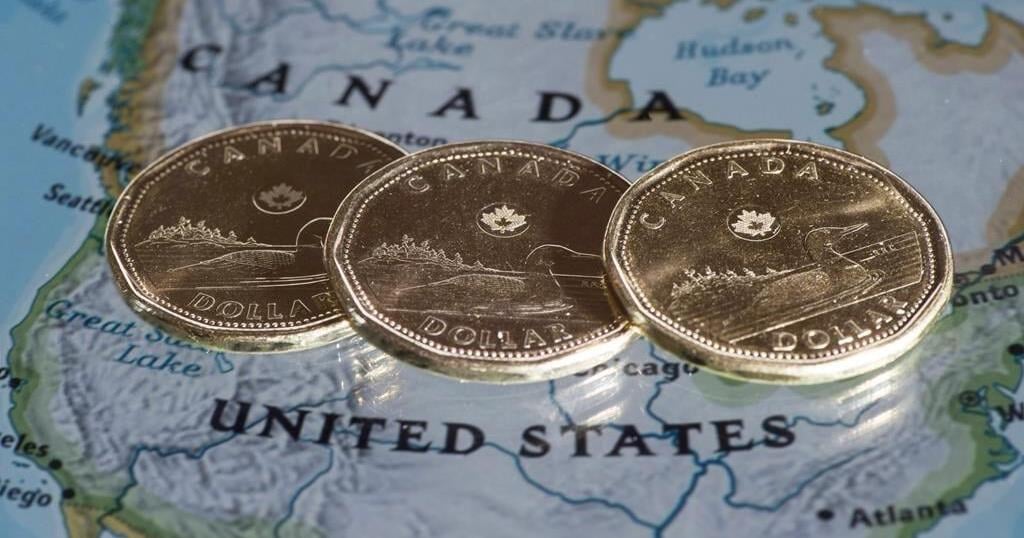TORONTO – While it was an evening meant to celebrate the progress made by LGBTQ+ leaders and organizations across Canada, the star-studded inaugural PTP Pink Awards carried an underlying sense that dark times are ahead.
Two days after U.S. voters re-elected Donald Trump as president, and a week after the Alberta government introduced sweeping legislation that could impact the lives of transgender people, the Thursday soiree unfolded with a guarded optimism summarized by host Priyanka as she opened the show.
“What a week, am I right?” the first winner of “Canada’s Drag Race” said to nervous laughter from the audience.
“The internet’s getting louder, people are getting more opinionated, and it’s great that everyone has a voice but oh … it’s hard!”
The celebrity drag queen tossed aside the negativity soon after by assuring the room that “what the doctor will order is queer joy.” And so for much of the night, queer positivity rang loudest.
Five notable LGBTQ+ Canadians, including actor Elliot Page and musician Rufus Wainwright, hand picked community groups they felt had made a difference.
Each organization received a $5,000 donation, a spot in an advocacy media campaign, and a portion of proceeds from a silent auction.
Page selected the Calgary-based Skipping Stone, which aims to connect transgender youth, adults and their families with support systems.
Before taking the stage, the “Umbrella Academy” actor spoke about keeping perspective on the threats befalling the trans community, especially as queer advocates worry a Conservative government led by Pierre Poilievre would mean a pullback in their rights.
“The path to liberation is not linear and this backlash is very real,” he said on the pink carpet.
Page added that it’s important the LGBTQ+ community is there for one another, and “strategizing together in terms of how are we going to resist what has been happening and what else is potentially coming.”
Skipping Stone’s managing director Amelia Marie Newbert paused during her acceptance speech to note that at that moment it was likely Alberta’s legislature was “literally debating our right to exist, something that shouldn’t be debated.”
However, she noted Skipping Stone’s recognition was meaningful not only for the organization but for the province’s transgender community.
“It’s about (them) feeling like there’s hope,” she said.
“Knowing there are people standing with us, that hope is priceless.”
Fellow honouree Jeremy Dutcher selected 2-Spirited People of the 1st Nations, a Toronto-based office that links the Indigenous community with local resources.
The two-time Polaris Music Prize-winning musician said he used that organization’s resources when he first moved to Toronto in his early 20s. But he emphasized how impressed he was by the efforts of other LGBTQ+ organizations in the room.
“None of this happens in a vacuum,” he said.
“There’s a constellation of people doing really incredible, transformative work that is making space for queer people.”
Other names honoured included queer activist Latoya Nugent, a refugee to Canada, who chose Among Friends, a program for LGBTQ+ refugee claimants that runs out of the 519 Toronto community centre.
Hockey player Marie-Philip Poulin, who was absent from the ceremony due to a game, chose You Can Play, which promotes inclusivity in sports.
Wainwright selected PFLAG Canada, the homegrown branch of the education and support organization for the LGBTQ+ community.
On the carpet, the U.S.-Canadian singer-songwriter wrestled with how to summarize his feelings about Trump’s re-election. He was an outspoken supporter of Democratic presidential nominee Kamala Harris.
“Look, it’s a disaster, obviously,” he said. “But I do think it’s part of a worldwide situation.”
“This is a human fight all of us are engaged in,” he added. “And the rubber has hit the road and we have to actually save the world.”
As one of the night’s musical performers, Wainwright settled behind a piano for a sombre performance of his 2007 song “Going to a Town,” which laments the decline of the United States. He noted that it was the first time he’d sung it since the election.
Rounding out the award winners was entrepreneur Salah Bachir, who received the Legacy Award for his philanthropy.
The Pink Awards were organized by Pink Triangle Press, the publisher of Xtra Magazine as well as an advocate for LGBTQ+ representation in Canadian media.
Managing director Jennifer McGuire said they were inspired to launch the show because of the growing hostile climate towards the LGBTQ+ community in many regions.
“We’ve seen an increase in hate crimes directed at the community, a clawback in rights targeted not only to trans people but beyond – reproductive rights, surrogacy rights, depending on the country,” she said
“It was an opportunity to turn the page on that and frame a public conversation about positivity and people doing good.”
Dutcher offered his take on the ongoing tumult and an assurance of brighter days, even if LGBTQ+ Canadians worry about what may be ahead.
“What we’re seeing is the death throes of a real sickness in our society and that’s going to pass, but it may pass through these parts before it’s done,” he said.
“As people of conscience, people of heart. I think we need to … come together and try to love each other because these are going to be strange times ahead.”
This report by The Canadian Press was first published Nov. 7, 2024.

























